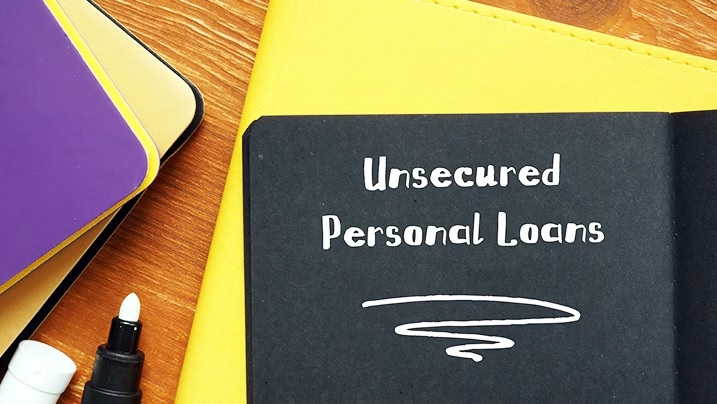Introduction
Unsecured personal loans have become a popular financial option for individuals looking to fulfil their financial needs, such as consolidating debt, funding home improvements and construction, covering medical expenses, or handling emergency needs. Unsecured personal loans do not require collateral, making them accessible to a broader range of borrowers. However, with numerous lenders and loan products available in the market, it can be challenging to choose the right unsecured personal loan that best suits your requirements. This article will provide a comprehensive guide on the factors you should consider when selecting an unsecured personal loan, empowering you to make an informed and responsible borrowing decision.
- Interest Rate and APR
The interest rate is one of the most crucial factors to consider when choosing an unsecured personal loan. It determines the additional cost of borrowing money and directly impacts your monthly payments. A lower interest rate means you will pay less in interest over the loan term, resulting in lower overall costs. On the other hand, a higher interest rate can lead to higher monthly payments and more significant expenses in the long run.
Another essential metric to assess is the Annual Percentage Rate (APR). The APR represents the total cost of the loan, including both the interest rate and any associated fees. It provides a more accurate picture of the loan’s actual cost, allowing for better comparisons between different loan offers. When comparing loans, always focus on the APR rather than just the interest rate.
- Loan Amount and Term
Before applying for an unsecured personal loan, carefully evaluate your financial needs and determine the exact loan amount required. It is crucial not to borrow more than necessary, as larger loan amounts might lead to longer repayment terms and higher interest expenses. Assess your financial capability to make regular monthly payments and choose a loan amount that aligns with your budget.
Additionally, consider the loan term, which refers to the duration of your repayment schedule. Shorter loan terms usually come with higher monthly payments but can save you money in interest payments over the life of the loan. Longer loan terms might offer lower monthly payments but can result in higher total interest costs. Finding the right balance between loan amount and term is vital to ensure a manageable repayment plan.
- Fees and Hidden Charges
Apart from the interest rate, lenders may impose various fees and charges associated with unsecured personal loans. These can include origination fees, application fees, prepayment penalties, late payment fees, and more. It is crucial to carefully review the loan agreement and understand all the fees involved before committing to a loan.
Comparing fees across different lenders can help you identify the most cost-effective loan option. For example, a loan with a slightly higher interest rate but no application or origination fees might end up being more affordable than a loan with a lower interest rate but higher upfront charges.
- Credit Score and Eligibility Criteria
Unsecured personal loan lenders often evaluate your creditworthiness based on your credit score and financial history. A higher credit score demonstrates a strong credit history and increases your chances of securing a loan with better terms, such as lower interest rates and higher loan amounts.
Before applying for a loan, check your credit score and credit report. Address any inaccuracies and take steps to improve your credit score if necessary. Additionally, understand the lender’s eligibility criteria, as some lenders might have specific requirements regarding credit scores, income levels, and employment status.
- Repayment Flexibility
When selecting an unsecured personal loan, consider the repayment flexibility offered by various lenders. Some lenders allow borrowers to customize their repayment schedule by offering options such as bi-weekly or monthly payments. This flexibility can be beneficial if you prefer a specific repayment frequency that aligns better with your paycheck schedule or financial preferences.
Furthermore, inquire about whether the lender allows early loan repayment without any penalties. Being able to pay off the loan ahead of schedule can help you save on interest costs and become debt-free sooner.
- Reputation and Customer Reviews
Choosing a reputable lender is essential to ensure a smooth borrowing experience and excellent customer service throughout the loan term. Research the reputation of the lenders you are considering by reading customer reviews and testimonials online. Positive feedback from previous borrowers is a good indicator of a lender’s reliability and commitment to customer satisfaction.
Avoid lenders with a history of complaints, poor customer experiences, or questionable business practices. A reputable lender will be transparent about its terms and fees, and their customer support should be responsive and helpful.
- Online Accessibility and Support
In the digital age, online accessibility is a significant advantage when applying for an unsecured personal loan. Look for lenders that provide a user-friendly online application process, allowing you to apply for loan conveniently from the comfort of your home. A personal loan app is the best option to apply for online loan, app makes application process easy. An efficient online platform can streamline the application and approval process, making it faster and more convenient.
In addition to online accessibility, consider the quality of customer support provided by the lender. It’s essential to have access to a helpful and responsive customer support team that can assist you with any questions or concerns related to the loan application, repayment process, or any other issues that may arise during the loan term.
Conclusion
Choosing the right unsecured personal loan requires thoughtful consideration of several factors to ensure you make a well-informed decision. Start by comparing interest rates and APRs to find the most cost-effective loan option. Evaluate the loan amount and term based on your financial needs and capabilities, and be mindful of the fees and charges associated with the loan.
Your credit score and eligibility criteria play a significant role in the loan approval process, so ensure you meet the requirements of the lender you choose. Repayment flexibility and early repayment options can provide added benefits, helping you manage your loan more effectively. Finally, prioritize lenders with a solid reputation, positive customer reviews, and user-friendly online platforms.
Remember that an unsecured personal loan is a financial commitment, so borrow responsibly and only take on a loan that you can comfortably repay. By considering these factors and conducting thorough research, you can find the best unsecured personal loan that suits your needs and helps you achieve your financial goals responsibly.






